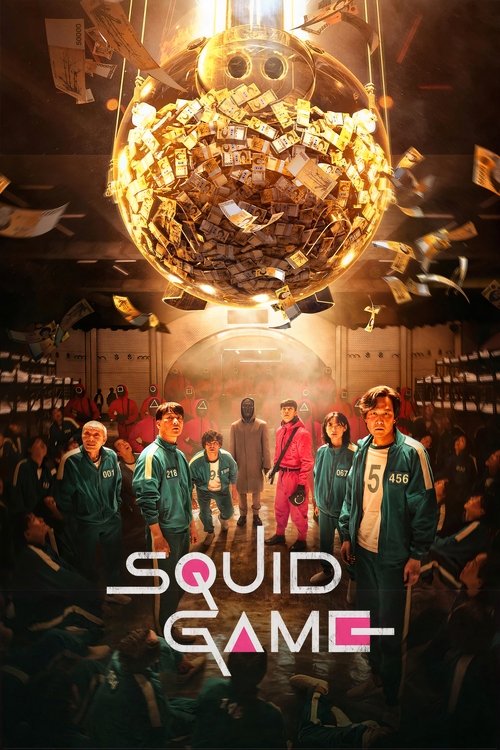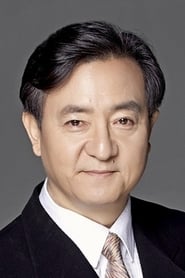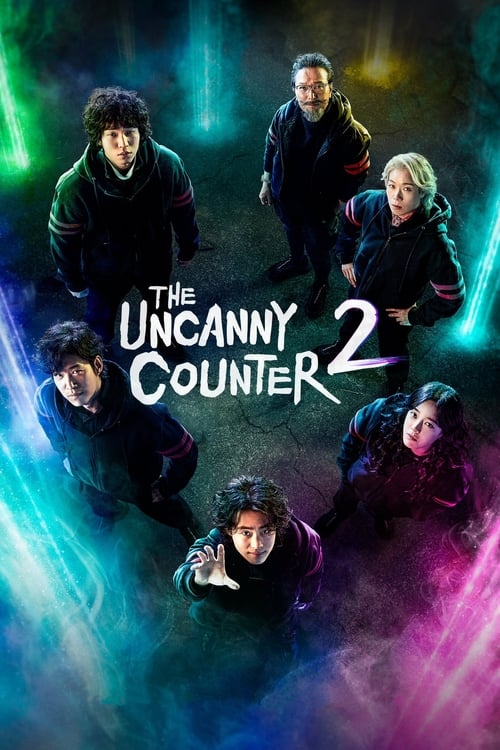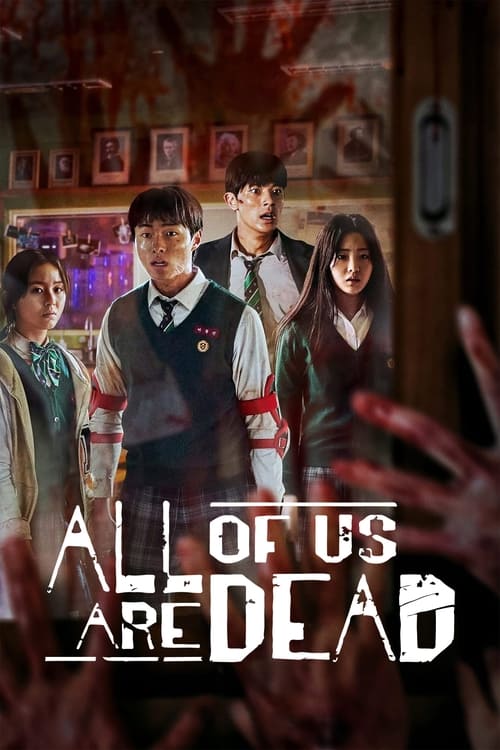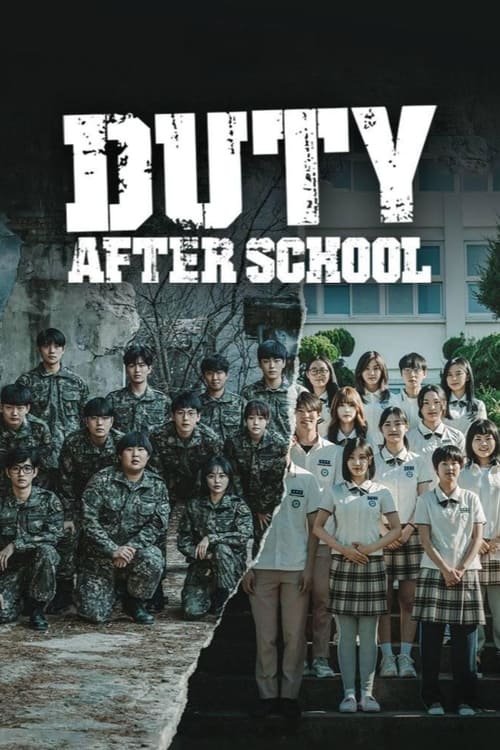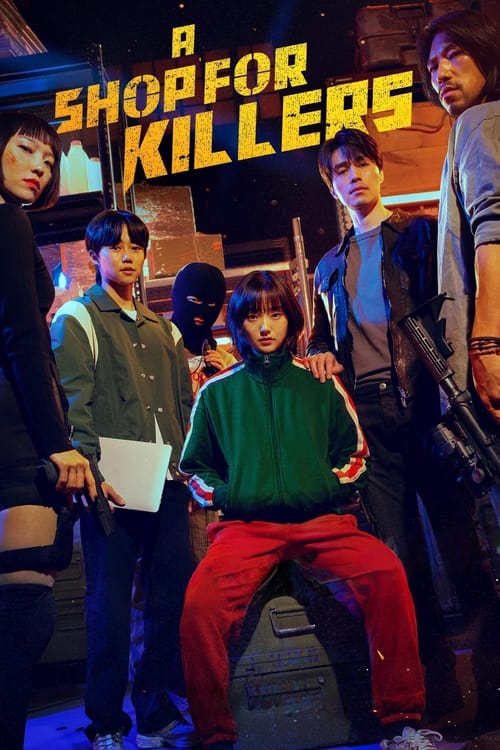
Ask Your Own Question
What is the plot?
Seong Gi-hun, a divorced father and gambling addict, is introduced as he struggles to make ends meet while living with his elderly mother. He is deeply in debt and is often seen at the racetrack, where he loses money. One day, he is approached by a mysterious man who offers him a chance to win money by playing a simple game. Gi-hun accepts the invitation and is taken to a secluded location where he meets other players, all of whom are in dire financial situations.
The players are soon informed that they will participate in a series of children's games, with the promise of a large cash prize for the winner. The first game is "Red Light, Green Light." As the game begins, players must move towards a finish line while a giant doll turns its head to catch anyone moving during "red light." Many players are eliminated when they fail to stop in time, and it is revealed that elimination means death. Gi-hun and a few others, including his childhood friend Cho Sang-woo and a North Korean defector named Kang Sae-byeok, manage to survive the first game.
After the first game, the surviving players are given the option to leave the game, and many choose to do so. Gi-hun returns to his life, but he is haunted by the events and the deaths he witnessed. He learns that the prize money is substantial, and he struggles with the moral implications of returning to the game. Eventually, he decides to rejoin the competition, motivated by the need to provide for his daughter and to escape his debts.
The second game is "Sugar Honeycombs," where players must carefully carve out shapes from a honeycomb candy without breaking it. Tensions rise as players work against the clock, and some resort to cheating. Gi-hun, with the help of Sae-byeok and a few others, manages to succeed, but not without witnessing more deaths. The psychological toll of the games begins to weigh heavily on the players, and alliances start to form.
In the third game, "Tug of War," teams are formed, and Gi-hun's team, which includes Sang-woo and Sae-byeok, must face off against a stronger team. They strategize and use their wits to win, showcasing their teamwork and ingenuity. The victory comes at a cost, as the losing team is brutally killed, further deepening the emotional scars of the survivors.
The fourth game is "Marbles," where players are paired off and must play a game of their choice to win each other's marbles. Gi-hun is paired with his elderly friend, Player 001, who has been a source of wisdom and support throughout the games. In a heartbreaking twist, Gi-hun ultimately has to betray Player 001 to survive, leading to a devastating emotional conflict within him.
As the games progress, the players learn more about the masked guards and the mysterious Front Man overseeing the competition. Gi-hun discovers that Sang-woo has been making ruthless decisions to ensure his own survival, including manipulating others and betraying alliances. The tension between the two friends escalates, revealing the darker sides of their personalities.
The final game is "Squid Game," a complex and brutal version of tag. Gi-hun faces off against Sang-woo, and the emotional stakes are at their highest. The two engage in a fierce battle, with Gi-hun ultimately gaining the upper hand. In a moment of compassion, Gi-hun offers Sang-woo a chance to leave the game alive, but Sang-woo chooses to take his own life instead, leaving Gi-hun as the sole survivor.
After winning the game, Gi-hun is awarded the massive cash prize but is left traumatized by the experience. He returns to the real world, but the weight of his actions and the loss of his friends haunt him. He learns that Player 001 was the mastermind behind the games, and this revelation adds another layer of complexity to his victory.
In the final scenes, Gi-hun attempts to reconnect with his daughter but struggles to reintegrate into society. He discovers that the games are still ongoing, as he witnesses a man being recruited to participate in the next round. In a moment of defiance, Gi-hun decides to confront the organizers of the games, vowing to put an end to the horrific cycle of violence and exploitation. The series ends with Gi-hun boarding a plane, determined to take action against the organization that put him and so many others through hell.
What is the ending?
Short Narrative of the Ending:
In the final episode of "Squid Game," Seong Gi-hun wins the deadly games, but instead of enjoying his newfound wealth, he is haunted by the memories of his fallen friends. He confronts the game's creator, Oh Il-nam, who reveals his motivations. Gi-hun decides to use his winnings to help others and ultimately vows to take down the organization behind the games. The series ends with Gi-hun, now a changed man, preparing to confront the people who orchestrated the games.
Expanded Narrative of the Ending:
As the final episode unfolds, the tension is palpable. Seong Gi-hun, the last remaining contestant, stands in the arena, having survived the brutal games that claimed the lives of his friends and fellow players. The atmosphere is heavy with the weight of loss and betrayal. Gi-hun faces off against the final challenge, a twisted version of the childhood game "Squid Game," where he must outsmart his opponent, the enigmatic and ruthless Sang-woo.
In a heart-wrenching climax, Gi-hun manages to defeat Sang-woo, who, in a moment of desperation, asks Gi-hun to end his life, unable to bear the guilt of his actions. Gi-hun, torn between his own survival and the bond they shared, ultimately refuses to kill Sang-woo, instead offering him a chance at redemption. However, Sang-woo takes his own life, leaving Gi-hun to grapple with the emotional aftermath of their friendship and the choices they made throughout the games.
With the games concluded, Gi-hun is declared the winner and is awarded a massive sum of money. As he leaves the arena, the weight of his victory is overshadowed by the memories of those who perished, including his childhood friend, Ali, and the strong-willed player, Sae-byeok. The joy of winning feels hollow, and Gi-hun is left to confront the reality of his actions and the cost of survival.
In the following scenes, Gi-hun returns to the real world, but he is a changed man. He struggles to reintegrate into society, haunted by the faces of his fallen comrades. He visits the families of his friends, attempting to make amends and honor their memories. The money he won feels tainted, and he grapples with the moral implications of his victory.
The narrative takes a pivotal turn when Gi-hun encounters Oh Il-nam, the elderly man who was a participant in the games and the mastermind behind them. In a shocking revelation, Il-nam explains his motivations for creating the games, sharing his perspective on the nature of humanity and the thrill of life and death. Gi-hun listens, filled with a mix of anger and sorrow, as he realizes the depth of the manipulation and cruelty behind the games.
In the final moments, Gi-hun makes a decisive choice. Instead of indulging in his newfound wealth, he vows to use it to help others, particularly those who are struggling like he once was. He decides to take action against the organization that orchestrated the games, determined to prevent others from suffering the same fate as his friends.
The series concludes with Gi-hun boarding a plane, but instead of flying away to a new life, he turns back, a look of resolve on his face. He is no longer the desperate man who entered the games; he is now a man with purpose, ready to confront the darkness that lurks behind the facade of wealth and power.
As the screen fades to black, the fate of the other main characters is revealed: Sang-woo is dead, having taken his own life; Sae-byeok is also deceased, a victim of the brutal competition; and Ali, who trusted Gi-hun, met a tragic end at the hands of betrayal. Each character's journey reflects the harsh realities of survival and the moral dilemmas faced in the pursuit of life. Gi-hun's transformation signifies a glimmer of hope amidst the despair, leaving viewers with a haunting reminder of the cost of the games and the resilience of the human spirit.
Who dies?
Is there a post-credit scene?
In the final moments of "Squid Game," after the intense conclusion of the series, there is a brief scene that serves as a post-credit moment. The scene opens with a close-up of Gi-hun, the main character, who is now back in the real world but visibly shaken and traumatized by his experiences in the deadly games.
As he walks through the streets, he is seen grappling with the weight of his decisions and the loss of his friends. The camera follows him as he approaches a train station, where he suddenly spots a familiar figure: the Front Man, the masked leader of the games. The Front Man is seen in a suit, standing in a shadowy corner, observing the world around him.
Gi-hun, filled with a mix of anger and determination, pulls out his phone and dials a number. The scene cuts to him on the phone, where he is heard saying, "I will find you," indicating his intent to uncover the truth behind the games and seek justice for those who lost their lives. The screen fades to black, leaving viewers with a sense of unresolved tension and the possibility of further conflict.
This post-credit scene encapsulates Gi-hun's transformation and sets the stage for potential future developments, hinting at his quest for retribution against the organization behind the Squid Game.
What is the significance of the number 456 in Squid Game?
In Squid Game, the number 456 is significant as it represents the main character, Seong Gi-hun, who is the last player to join the deadly games. The number symbolizes his position as the underdog and his journey throughout the series, highlighting his struggles and the stakes involved in the games.
How does the character of Ali Abdul impact the story?
Ali Abdul, a migrant worker from Pakistan, plays a crucial role in the story as he forms a bond with Gi-hun and helps him during the games. His character showcases themes of trust and betrayal, especially when he is ultimately betrayed by another player, which adds emotional weight to the narrative.
What role does the Front Man play in the Squid Game?
The Front Man is a mysterious figure who oversees the games and enforces the rules. His character is pivotal as he represents the authority of the game and is later revealed to have a personal connection to one of the players, adding layers to the plot and the motivations behind the games.
What is the significance of the 'Red Light, Green Light' game?
The 'Red Light, Green Light' game serves as the first challenge in the Squid Game and sets the tone for the series. It introduces the deadly stakes of the competition, where players must navigate their fear and desperation, and it establishes the brutal nature of the games that follow.
How does the character of Kang Sae-byeok influence the dynamics among the players?
Kang Sae-byeok, a North Korean defector, influences the dynamics among the players through her determination and resourcefulness. Her backstory and motivations resonate with other players, creating alliances and tensions, particularly with Gi-hun and other characters as they navigate the moral complexities of survival.
Is this family friendly?
In the TV show "Squid Game," several scenes and aspects may be considered objectionable or upsetting for children or sensitive viewers.
-
Violence: The series features graphic depictions of violence, including characters being shot or harmed in various games, which can be quite intense and disturbing.
-
Death: The concept of death is central to the show, with many characters facing fatal consequences in a high-stakes environment, leading to emotional and shocking moments.
-
Psychological Tension: The atmosphere is filled with suspense and anxiety, as characters are often placed in life-or-death situations, which can be distressing.
-
Themes of Desperation: The show explores themes of poverty, betrayal, and desperation, showcasing characters in extreme emotional distress and moral dilemmas.
-
Gore: Some scenes include graphic imagery and blood, which may be unsettling for younger viewers.
-
Adult Language: The dialogue includes strong language and adult themes that may not be suitable for children.
-
Manipulation and Deception: Characters often engage in manipulation and deceit, which can be unsettling and may not be appropriate for younger audiences.
These elements contribute to a dark and intense narrative that may not be suitable for family viewing, particularly for children or those sensitive to such content.

